

Dental implants are titanium-based artificial tooth roots that are implanted into your jawbone. After that, a crown is connected to the implant, which gives it the appearance and function of your natural teeth, making it a good long-term alternative for missing teeth. Dental implants can be used to replace a single tooth, numerous teeth, or even an entire jaw of missing teeth. Dentures can also be secured by clipping them to dental implants to keep them from moving around.
There are two main parts to a dental implant: the crown part or the “tooth part”, and the implant part or the “root part”. The root part/implant is placed in the jaw bone first and left to heal for 3-4months before the tooth part/crown is screwed on the top for you to chew on.
Dental implants have been used for decades, with several studies demonstrating extremely high long-term success rates of 95-98%, as well as excellent aesthetic and functional outcomes.
Not only will replacing missing teeth with implants minimise the visual issue of gaps between your teeth, but it will also prevent neighbouring teeth from slipping into the area and becoming crooked. Implants can also help to support your jaw and prevent bone loss, helping you to avoid the ‘sunken face’ look.

Dental implants can replace one or more of your teeth without compromising the health of your neighbouring teeth by chopping them down or utilising them as bridge or denture anchors.

Notice the need to shave adjacent tooth structure down to accommodate a fixed bridge.
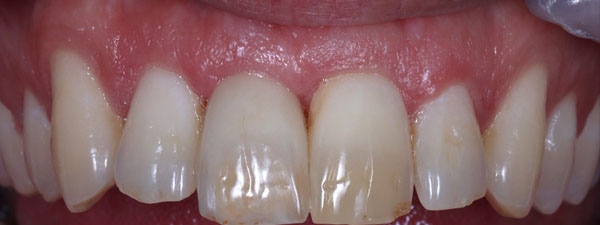


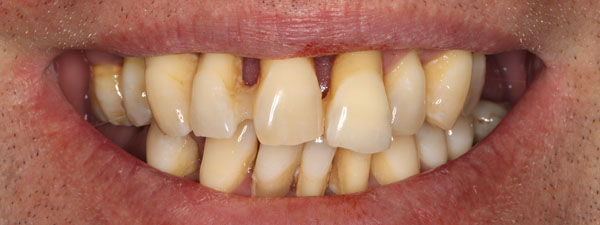
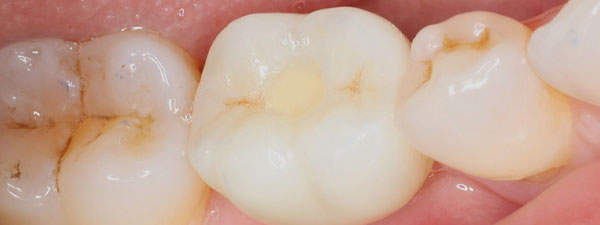


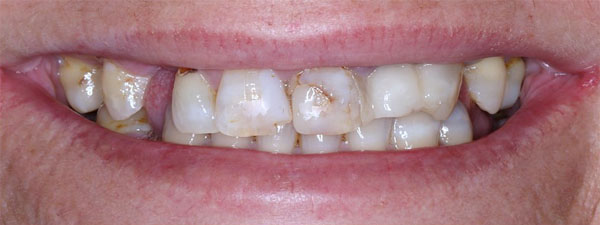
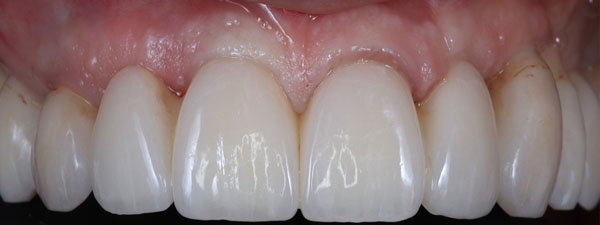
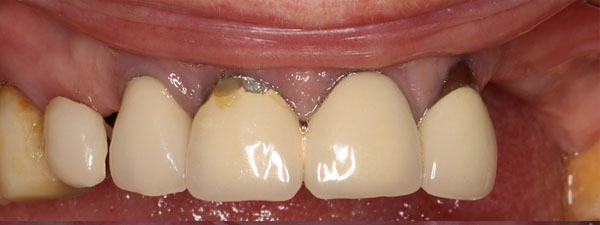
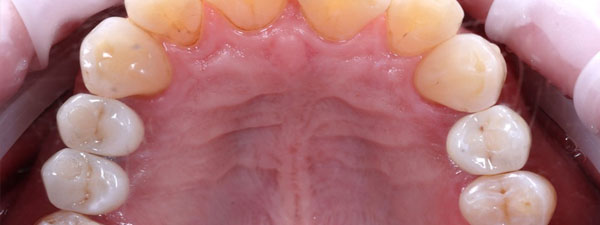

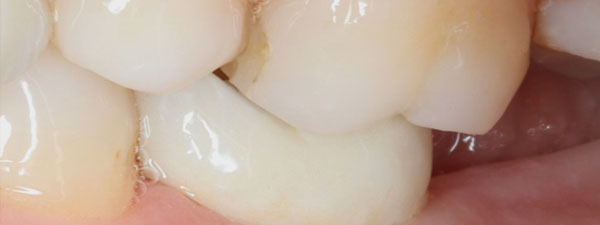
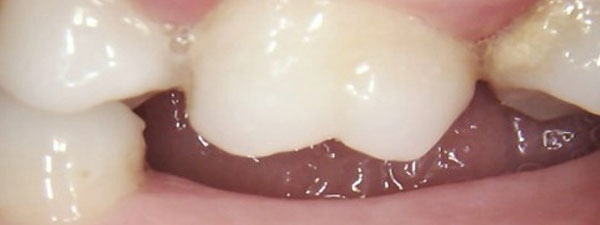
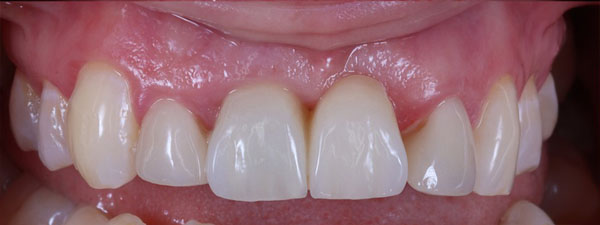
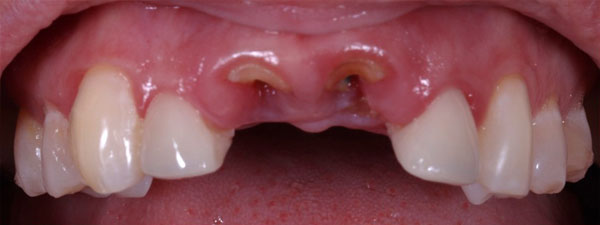
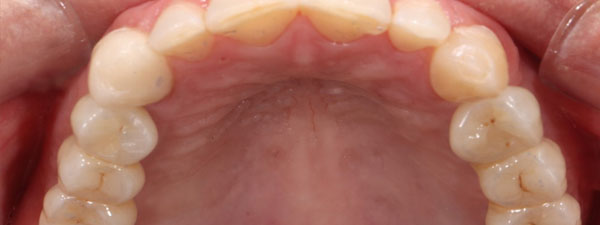


It is better to get an implant as soon as you can after the tooth is extracted. In some cases, we can even place the implant immediately after we remove the tooth. Sometimes we may have to wait 6-8 weeks. The longer it is left, the less bone there is, making implant placement more difficult. To determine if you are a good candidate for dental implants, your dentist will do a complete examination of your bone levels.
After we complete your comprehensive oral health examination and 3D scan, we’ll let you know if you’re a candidate for dental implants. Your mouth must be healthy and free of problems such as tooth decay or gum disease before we can begin the implant therapy.
Age is not a factor as long as you have adequate bone in your jaw to support the implant. We may prescribe bone grafting or bone augmenting procedures if there isn’t enough bone to support the implant. These factors will be discussed with you during your comprehensive check-up and consult.
Single Implant + Final Crown (Back tooth) starting from $3999-5500
Single Implant + Final Crown (Front tooth) starting from $4999-6500
All-on-4® (A full set of teeth supported by 4 implants) from $20,000-35,000
Sinus grafting process starting from $700-1000
Guided bone regeneration starting from $700-1000
Monday - Friday
8am - 5pm
30 Currie Street, Nambour (Next to
McDonald's)


© 2022 Copyright Coronation House Dentist Nambour

Enter your details below and you will receive our E-Book via email.